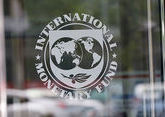Russia’s macroeconomic situation is stable, despite the sanctions and structural rigidities, according to International Monetary Fund (IMF) mission, led by James Roaf, which visited Russia to discuss recent economic developments.
"Russia’s overall economic situation may be characterized by three main factors. First, adherence to a sound macroeconomic framework, which supports economic activity by reducing uncertainty," the statement reads.
Roaf stressed that the Russian authorities keeps inflation under control and provide confidence in the exchange rate.
At the same time, despite reform efforts and national projects, structural rigidities and "sanctions are holding back both foreign and domestic investment, and reducing Russia’s international market integration," according to the statement.
According to Roaf, the medium-term outlook for the Russian economy remains subdued, with growth projected at or below 2% through the next few years.
The IMF believes that the interest rate cuts implemented by the Central Bank of Russia have been an appropriate response to weakening inflationary pressures. "With inflation expected to remain below target throughout 2020, further interest rate cuts will be appropriate," the statement reads.
“Fiscal policy has been tighter than originally intended in 2019, due to the temporary delays in national projects execution and overperformance of revenues, especially personal and corporate income tax. This has probably contributed to the slowdown in demand. If the improved revenue performance is determined to be permanent, consideration should be given to further growth-friendly fiscal measures.
The IMF also praised Russia’s fiscal rule, under which government revenues from higher oil prices have been automatically invested abroad via the National Welfare Fund as successful in "building national wealth and insulating the economy from fluctuations in oil prices, thus encouraging growth of the nonoil economy."









